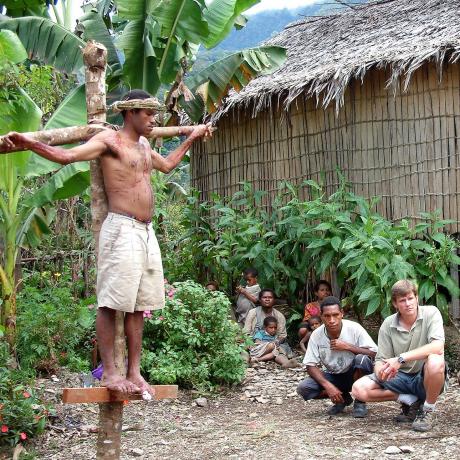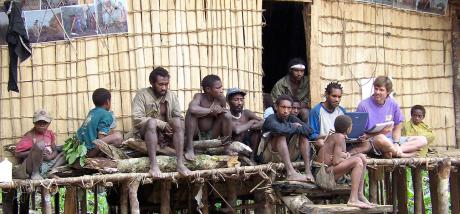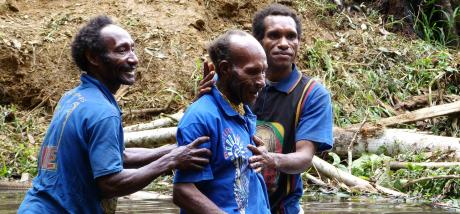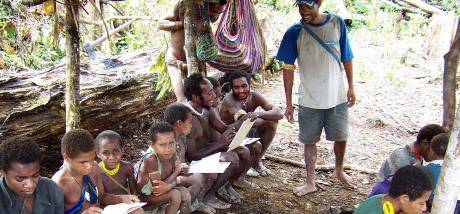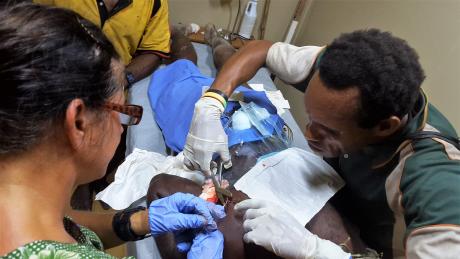
The Hewas - God’s story, God’s people, God’s future. Part 3
Not knowing what causes pain and body trembling and serious illnesses out in the jungle can lead to many fatalities. The tribal people had learned from their ancestors to apply mud to open wounds, rub stinging nettles on areas of pain, and also to identify and accuse those who were believed to be possessed by spirits whom they supposed were causing illness in loved ones. In those conditions, even if someone wanted to step away from the ancestral customs and take a sick person to the nearest medical care, it would require a strenuous four-day hike through rugged terrain to get to the nearest hospital.
Jonathan’s wife and his co-worker, who were both trained as nurses, introduced simple medical practices in the remote village to train the most faithful men and women on how to take care of their own village members. This simple instruction opened the door for a doctor in one of the nearest towns to provide further medical training so that now there is a functioning medical clinic in the tribe.
Ancestral Practises vs Basic Medical Knowledge
If there were no flights available, or if we didn’t have the airstrip, I think life in the jungle would revert to how it was before our arrival.
Some people think life in these remote mountains is ideal. Like, why wouldn’t they want to live in the jungle with the peacefulness of nature and the absence of stress that we experience in our home countries? But I have witnessed that this is not the case. Life is not peaceful here in the jungle. It is not tranquil. It is not a stress-free life. It is actually very difficult for them without medical care for their loved ones, and without education. The people here really need help and have been asking for help.
Before they had airplanes landing here in the village, there would be sicknesses that would sweep through the mountains. And the people didn’t have any medical clinics or hospitals close by. The nearest hospital was a grueling four-day hike away. So, they would simply die.
They had their ancestral practices of smearing mud on open sores, but they didn’t have medicine. They would chant magic words and would kill pigs to offer the blood as a sacrifice to the spirits to try to make the sick person recover. They would yell into the air, asking the benevolent spirits to intercede, hoping the evil spirit that was causing the sickness and potential death would go. That was their form of medicine before they had the option of going to a medical clinic or a hospital.
A Woman Flown to Hospital
So, the airstrip now gives them the ability to go to town and get help for a sick child or a mother who needs to deliver, who’s having complications, or any other serious illnesses.
Recently, we were able to send a TB patient and a woman who had internal bleeding to the hospital on the MAF airplane. Our little medical clinic can’t handle those levels of illness out here in the bush. So, it was so important to have the ability to call the airplane to come to the rescue of this woman and take her to a town where a real doctor could take care of her. In this case, we’re praising the Lord because the doctors in town were able to operate and help her. And we hear she’s recovering beautifully and is ready to come home today.
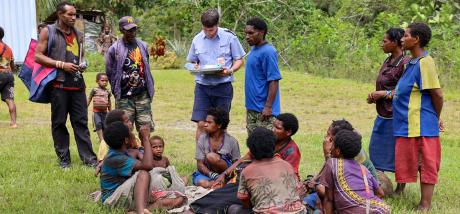
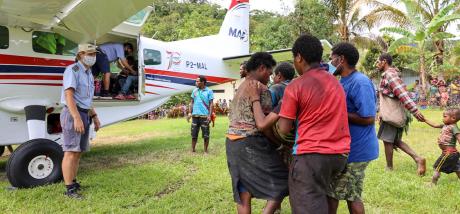
The Beginning of a Little Medical Clinic
My wife was trained as a nurse, and our previous co-worker also was a nurse in the States. They tried to set up this medical clinic, but there were no government medical workers who would come and live in this remote location. We’ve tried. Nobody wants to come out here and live in this kind of situation.
So, my wife, Susan, and our previous co-worker tried to find the sharpest young men or women, who were the aptest to learn and the most faithful to come every day to administer medicine for their fellow tribesmen. Some of those people that she’s poured a lot of effort into over the years have developed the patience, ability, aptitude, and desire to help in this way. We have seen four or five who have become capable of diagnosing the simplest illnesses and helping with the cases that we can cover in this remote location.
One of these people has been Yanis. In 2004, Yanis was one of my most faithful teachers of the Hewa language and then he became a translation assistant. He caught the message of the Bible and became one of the first believers in Jesus. As we were teaching the people, he helped act out the death of Jesus on the Cross in 2005. And then later he helped me teach Creation through Christ lessons in his grandfather's village and taught the first literacy class there in 2008. It was there when I saw he had a great relationship with his family, which later invited us to their villages when things in the first village got unpleasant.
He got married in 2009 and currently has three sons.
Yanis has become one of the five pastors of Yifki and continues to be a faithful teacher of the Word as well as a faithful medical worker. A few years ago, Yanis was able to help baptize his own father. A big part of his medical ministry is taking care of babies.
We realise, we can’t oversee this little clinic forever, so we have been trying to turn it over to the government or a hospital in town. Somebody must manage this for the village because someday we will leave.
A Divine Training Opportunity for Yanis
As we were praying about this, a doctor from town actually came here. He saw what Susan and Keith had been doing and he was amazed, and he said, ‘I want to help you. I see what you’re doing and realise you can’t provide all the medicine that a whole village will need.’ He went back to his hospital and asked if they could sort of adopt the most faithful of Susan’s trainees. And he actually paid for Yanis to go out to town and to live with him for more than a year. Yanis was able to follow this doctor around the hospital as he was doing his daily work. He learned a tremendous amount in a short period of time and has come back and has continued to be a faithful worker here.
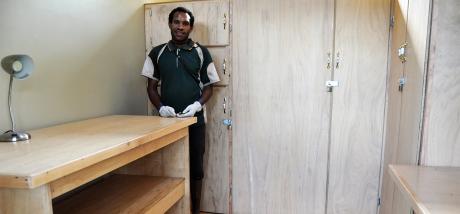
The Continuous Need for Medical Supplies
Our little village clinic needs ongoing medical supplies, which is a challenge. The country tries to provide medicine for its hospitals and medical clinics, but there are always shortages. But we’re very happy that because of how the doctor took Yanis under his wing and provided training, it has opened a door for that hospital to give small amounts of medicine to this village regularly.
However, the hospital won’t just send supplies to us. Yanis needs to go to town. He has forms to fill out that show that he’s been administering medicine. He records all his cases and what he’s done. He submits his reports along with a request for more medicine to fit his needs here. And the hospital tries to fill it.
When Yanis can go to town and present the need to the hospital, they’ve been very generous. But if flights aren’t available, he can’t go to town and then our clinic runs out of supplies. So, it’s very important that he has flights available. And we’re very grateful for MAF filling that huge need here in the village.
So, it’s very important that he has flights available. And we’re very grateful for MAF filling that huge need here in the village.
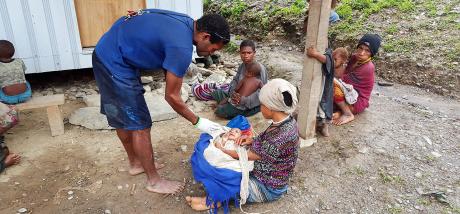
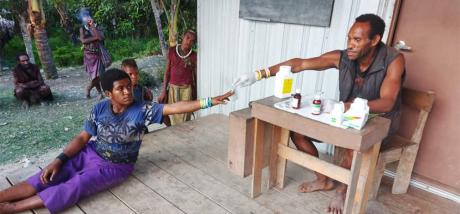
In the final fourth part of this Hewa story, we’ll discover how God’s love changed murderers into loving and caring husbands. Stay tuned! Read it HERE.
Missionary Jonathan Kopf and his wife Susan were invited to live amongst some Hewa people. They shared the Gospel of Jesus, taught literacy in the local language, and showed them how to care for their most basic medical needs.
Read Part 1 of their story HERE, titled "A village that's following Jesus."
Part 2 focuses on the people's plea for education. Read it HERE.
